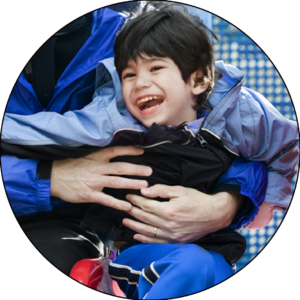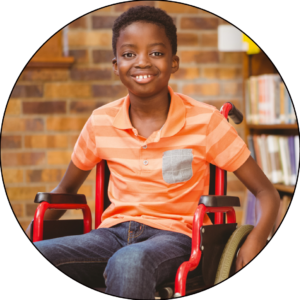Early Intervention (Birth to 3 years old)

Early intervention (EI) helps young children work toward meeting developmental milestones. While EI is typically until age 3, some are able to extend to age 5. Covered under the Individuals with Disabilities Education Act (IDEA), EI services also are able to support the families who care for the children who are eligible for EI. Early Intervention focuses on skills in five areas: physical (crawling, drawing), cognitive (thinking, learning), communication (talking, listening, understanding others), self-help or adaptive (eating, dressing), social or emotional (playing, interacting with others). Services can be provided at home or in the community and depending on which skills are delayed, there are different types of specialists who work with the children.
It is never too early to start thinking about employment. At this stage, focus on the positives and the strengths of the child noticed at such a young age.
- Does the child’s smile light up a room?
- Do people naturally gravitate towards the child because of their personality?
- How do they communicate with you and with others?
- What CAN the child do, with or without assistive technology or other supports?
- Who or what makes your child happy?
Early Intervention FAQs
Who qualifies for EI services?
To be eligible, your child ages birth to 3 must have either:
- A developmental delay, OR
- A specific health condition that will probably lead to a delay. This includes things like hearing loss, birth defects, and certain genetic disorders.
What is an IFSP?
My child receives EI services. Will my child lose these services on their third birthday?
Your child’s service coordinator will hold a transition meeting to talk about moving your child from early intervention services to special education services under IDEA. You should expect this transition discussion with you and the early intervention team to occur at least a few months before your child’s third birthday. This will help you determine how to prepare your child for what is next. If your child is eligible for preschool special education, a member of the local school district will work with you too.
What if my child is already 3 years old?
It is not too late for help. The first step is getting an evaluation. It will determine if your child needs special education or related services. If your child is eligible, you will meet with the school to develop an Individualized Education Plan (IEP) for your child.





